 Warwick
Turbulence Symposium: Workshop Warwick
Turbulence Symposium: Workshop
|
"Environmental Turbulence from Clouds through the Ocean"
and Theoretical and Computational Issues in Environmental
Turbulence
March 13-17, 2006
Joint with EPSRC/UK Platform grant on Turbulence.
Organisers: Ian Castro (Southampton), Darryl Holm (ICL), Robert Kerr
(Warwick), Sergey Nazarenko (Warwick), and Christos Vassilicos (ICL)
|
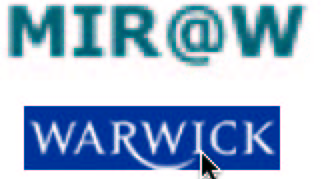   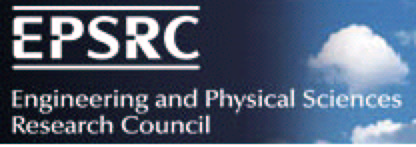  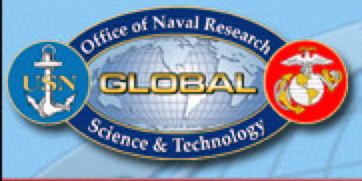
|
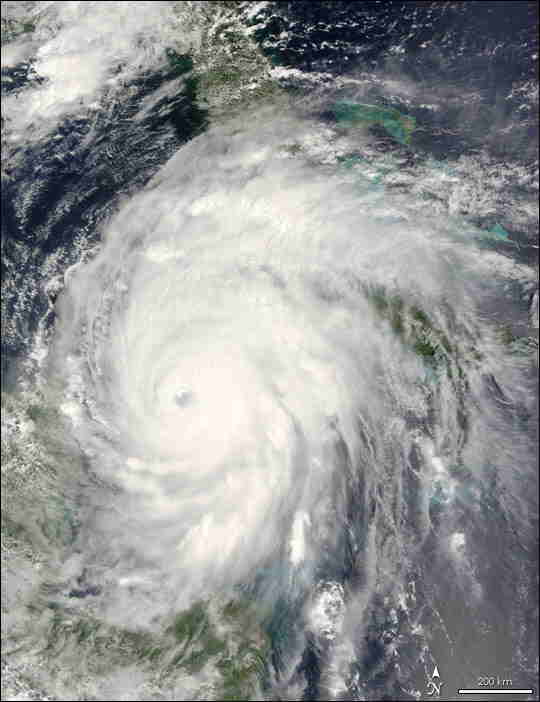 |
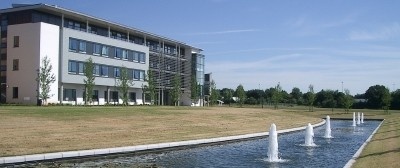 |
| Image of Hurricane Ivan |
Zeeman Building
Mathematics Institute, University of Warwick |
Geophysical and environmental turbulence is of huge
importance for weather forecasting and climate modelling, aviation and
sea navigation, prediction of natural hazards, etc. This area has
experienced significant growth and advances over the last decade thanks
to improved understanding of the underlying processes and to the
increased computational power available.
To examine these issues, as part of the year-long
Warwick Turbulence Symposium at the University of Warwick, United
Kingdom, we will hold a four day meeting 14 March-17 March, 2006 on:
"Environmental Turbulence from Clouds through the Oceans"
supported by the Warwick Turbulence Symposium, the EPSRC/UK Platform
Grant on Turbulence and the UK Met Office.
A one day workshop on 13 March 2006 (Day 0) discussing
"Theoretical and computational issues in environmental turbulence" will
precede the main meeting and is supported by the MIR@W programme of the
Warwick Mathematics Institute.
The predictive power of operational forecasting remains
far from perfect because even the most powerful supercomputers cannot
resolve the important small-scale processes in turbulence on an
operational basis. Even the most optimistic extrapolations of computer
development do not leave any hope that this problem will be solved soon
just by direct increase in computational power. Until recently,
turbulence in geophysical flows has usually been parametrised as a
diffusive process. With more powerful computers, better codes, better
parametrisations and improved observations, many more of the details of
turbulence have become important. Thus, we should aim at finding better
models of the unresolved (subgrid) scales. Further, much work remains
to be done in establishing the role of waves in the small-scale
dynamics of atmospheric and oceanic turbulence, studying the mechanisms
responsible for air-sea exchanges (momentum, gas, sea spray and
moisture), formation of rain clouds and the rain dynamics.
Another important question to study is how underwater
turbulence interacts with the free surface motions. These processes
affect, for example, the spreading of oil slicks and the mixing of CO2
and oxygen to deeper layers in sea-water. Finally, we mention boundary
layer turbulence as a classical example important in both atmospheric
science and industrial fluid dynamics. This workshop will discuss
recent progress in the above fields and will particularly encourage
interaction between theoreticians and researchers involved with
practical applications including experimentalists.
The objective of these meetings is to complement
presentations of some of the latest developments with discussions among
some of world's experts to discuss the state of the field and where it
will be going.
Questions that would be addressed include:
Where does turbulent physics, modelling and
parametrization matter the most?
Where are its effects least understood?
What are some surprising effects of turbulent mixing in the environment?
Four specific regimes whose mixing will be discussed
include: the clouds, air-sea interface, upper ocean mixing and deep
ocean mixing. For clouds the focus would be warm rain formation via
cloud mixing, cluster formation and other effects. For the oceans,
three recent missions would be discussed: CBLAST - Coupled Boundary
Layer Air-Sea Transfer. CLIMODE - Studies of the "Eighteen Degree
Water" layer from the Gulf Stream. DOME - Dynamics of Overflow, Mixing
and Entrainment that relates to deep water mixing.
Programme with links to presentations
While the priority of this meeting beyond the invited
talks is free-ranging discussions, we hope to allow all participants to
present their work either at the poster or contributed level. We are
hoping there will be additional funds to provide limited support for
some of
these additional participants.
Registration for the meeting is possible through our
meeting web site:
http://www.eng.warwick.ac.uk/staff/rmk/rmk_files/registration.txt
There is limited on-campus housing during the meeting and we can refer
you to local off-campus accommodations.
Information for all the events that are part of the
Warwick Turbulence Symposium is available at:
http://www.warwick.ac.uk/~masbu/
turb_symp/WTS.html
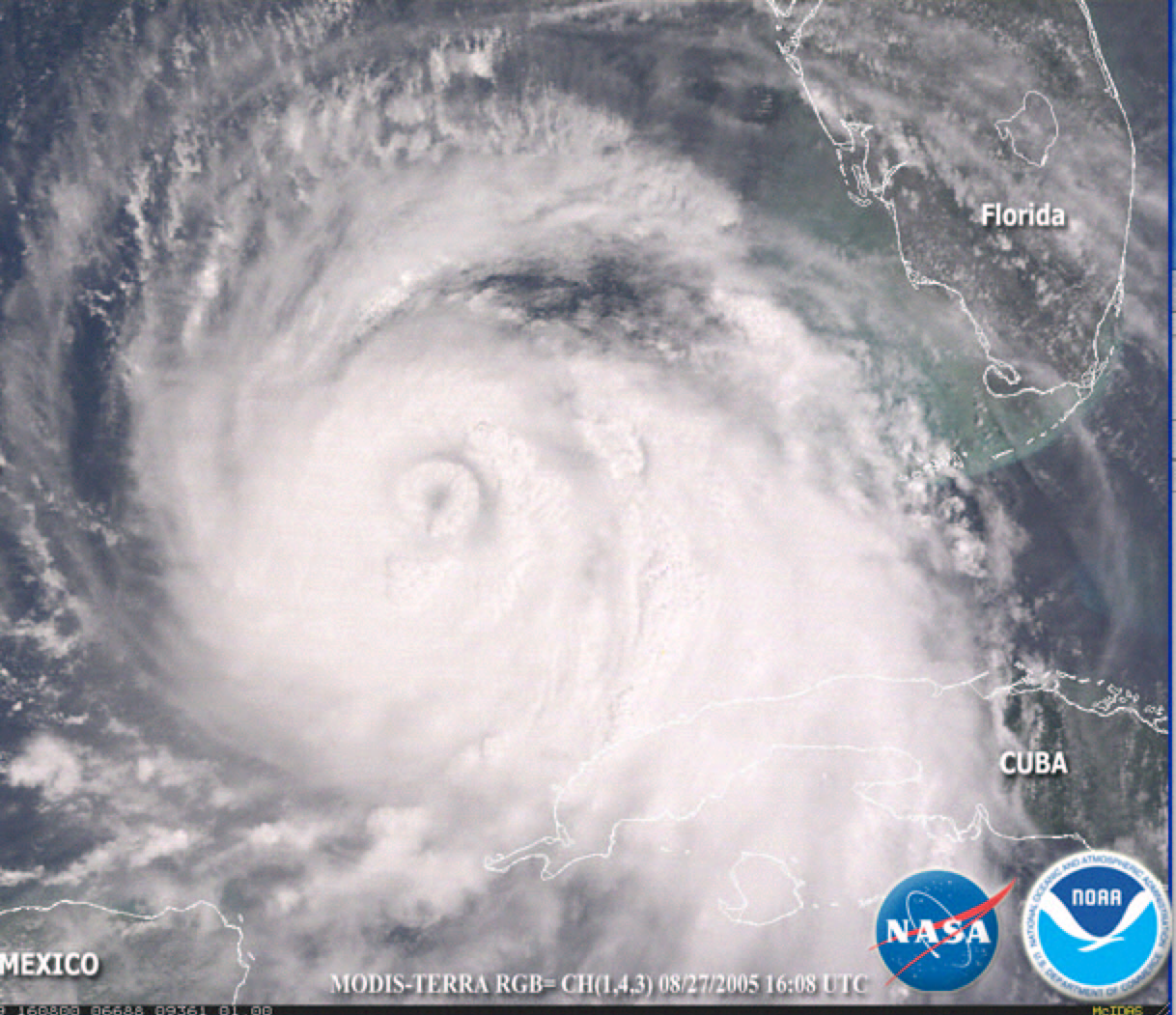 |
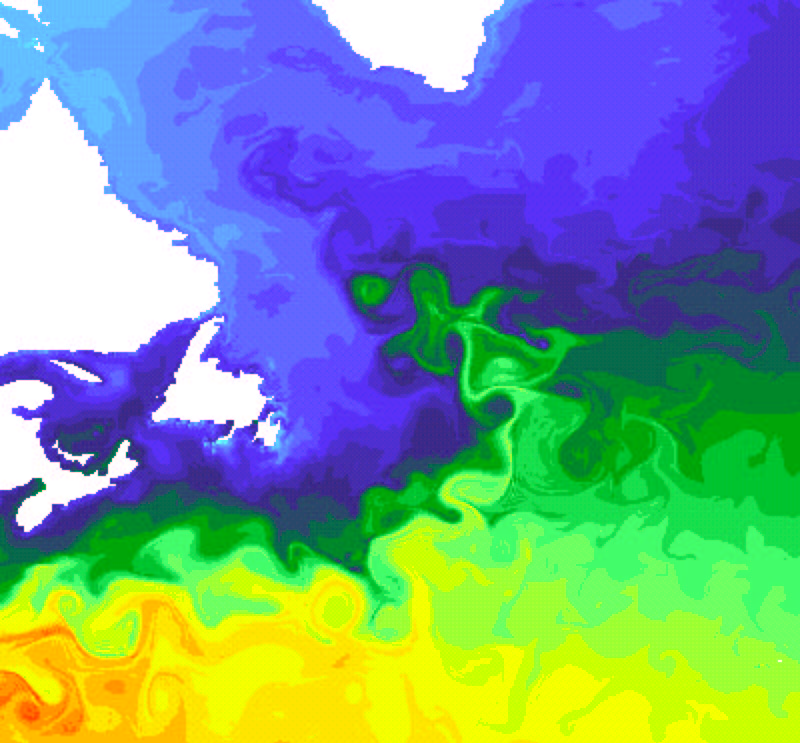 |
| Image of Hurricane Katrina 1800Z, 27
August 2005 |
Eddies associated with the 18 degree
water off the Maritime Provinces |







